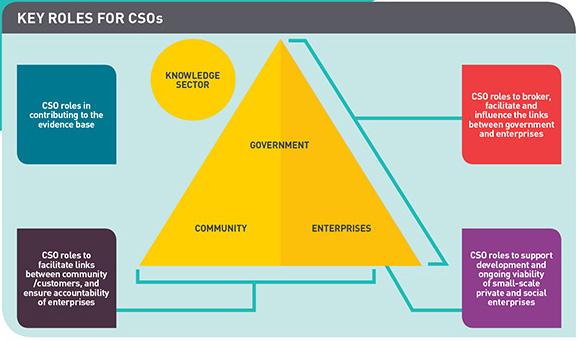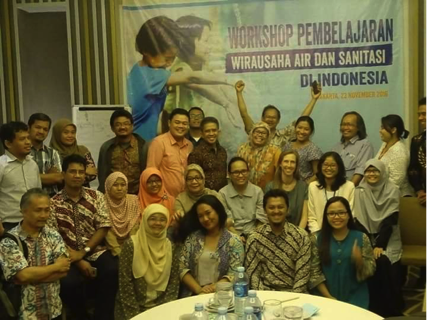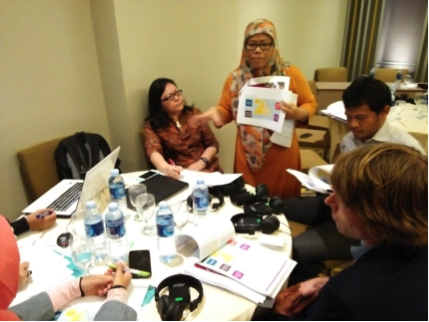
A series of six learning briefs and four policy briefs have been added to the Enterprise in WASH website as Phase 1 of the project draws to a close.
The learning briefs are for civil society organisations (CSOs) active in supporting small-scale local enterprises that provide water and sanitation services for the community, including the poor and disadvantaged.
Their purpose is to inform CSO approaches, strategies and program design. The briefs were developed primarily for CSO program planners and designers, but they will also be useful for a wide range of WASH practitioners.
They are available in English, Indonesian and Vietnamese and cover the following topics:
Learning brief 2: Know your private sector
Learning brief 3: Working with governments
Learning brief 4: Driving equality
Learning brief 5: Private and social enterprise business models
Learning brief 6: Working with motivations and incentives


A series of four policy briefs for government stakeholders have also been developed. These include:
Policy Brief 1: Sustainability of rural water systems in Indonesia
Policy Brief 2: Entrepreneurship in sanitation, Indonesia
Policy Brief 3: Rural water supply systems and the role of the private sector
Policy Brief 4: Facilitation sanitation supply in Vietnam
Last year was a big year for the Enterprise in WASH project with many quality research outputs and communications products completed and up on the website.
Some important and significant gaps in knowledge and evidence about working with small-scale water and sanitation enterprises have now been filled.
Over the last fours years, the project team, with the help of its many research partners, has achieved the following:
- 81 knowledge outputs were produced and shared over the course of the research. This includes a literature review, 14 conference papers presentations and workshops, five journal papers, working papers, technical papers, summary documents, learning briefs and policy briefs – many of which are available in multiple languages.
- Three webinars were held to share learnings beyond traditional communication channels.
- Research findings have influenced policy and practice in Vietnam and Indonesia.
- Enterprise in WASH research provided up-to-date, relevant evidence to inform discussions with CS WASH Fund and WASH Reference Group
The second phase of the Enterprise in WASH project has now started and will continue to investigate and inform effective roles for the small-scale private sector in water and sanitation services in South East Asia.
In this new phase (2016 – 2018) three further dimensions of enterprise engagement will be explored:
- Gender and entrepreneurship (Indonesia and Cambodia): an investigation of the barriers and enablers for women to engage in water and sanitation entrepreneurial activities, and effective strategies to enable this.
- Associations and other business support mechanisms (Indonesia and Cambodia): an investigation of the range of possible business models suitable for intermediate level support organisations for WASH enterprises, and the key principles by which such organisations should function to ensure equitable and sustainable outcomes.
- Sustainable cost structures for private water enterprises (Vietnam): an analysis of the cost structure of a set of water schemes in terms of life-cycle costs for ongoing service delivery, and the implications for supporting affordable services for the poor and policies related to the setting of tariffs and fees.

